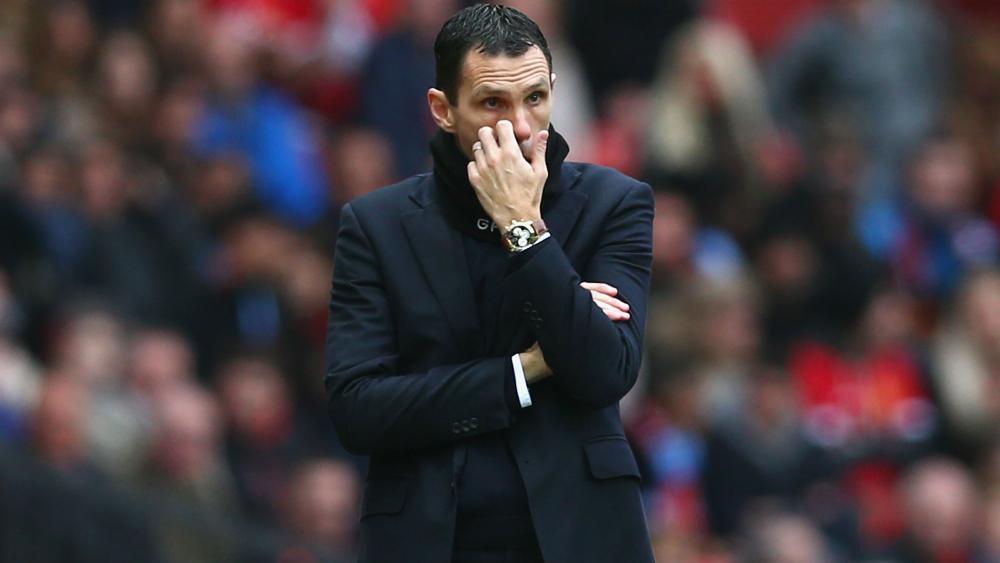Referee East says 'no mistaken identity'
Referee Roger East claims that Wes Brown's red card in Sunderland’s 2-0 loss at Manchester United was not a case of mistaken identity.

Gus Poyet's men were holding out under pressure at Old Trafford until Radamel Falcao was pulled to ground by John O'Shea in the penalty area in the 64th minute.
East made the seemingly straightforward decision to point to the spot, but confusion followed when he sent off Brown and not O'Shea - the former having muscled in alongside his team-mate without appearing to be the one to make the decisive contact.
Wayne Rooney slotted home the resulting spot-kick and then added a second six minutes from time to extend Sunderland's winless Premier League run to four matches.
And after the match, a statement from referees' governing body Professional Games Match Officials Limited (PGMOL) sought to clarify East's interpretation of the incident.
"From his position Roger East, the match referee, believed he saw contact from John O’Shea and Wes Brown on Radamel Falcao," the statement read.
"As he thought Brown made a foul on Falcao while he was in the act of shooting, he dismissed Brown.
"After the incident the match referee consulted with his team of officials but none were better placed to offer guidance."
Get FourFourTwo Newsletter
The best features, fun and footballing quizzes, straight to your inbox every week.
Speaking at his post-match press conference, prior to the statement being released, Poyet reserved judgement on the decision.
"I just saw one clip," he said. "I think we need to analyse properly the action, the report from the referee, what he told the players.
"He told the players there were two fouls - one committed by John O'Shea, one committed by Wes Brown and he gave the Wes Brown one so that's why he got sent off.
"It looked like Wes Brown didn't touch anyone so I don't know what he saw really.
"We are going to analyse. We need to be fair with the players but we need to realise that there is a report and there is something that the referee sees that all of us, we think didn't happen.
"With everything on the table and with the players together we will make a decision [on whether to appeal Brown’s red card]."
Poyet does not believe such flashpoints are an argument in favour of using increased video technology in football, but he urged officials to improve their performances.
"I like football like it is," he said. "That doesn't mean that the referees… they have to get better. I think it's time for them to get better.
"Then we can talk about whether it's the right or the wrong decision - that's a consequence.
"But I don't think it’s a problem to have these conversations, to be able to go tomorrow and go to a pub and discuss what the referee did.
"If not it's going to become mathematics and it's going to be boring.
"Not because of that they don’t have to get better - I think they do have to get better. It's too many [mistakes] every day, every weekend."
The Uruguayan also called on the game's authorities not to protect referees who make errors.
Poyet added: "They are going to say what they want to, to support the referees. I think that is not honesty. I think they need to be more honest.
"We are human beings. I made a decision today - I did not change early enough to not make that penalty happen. That was my decision and I can make a mistake.
"So they need to accept as well and not hide, because at the moment they are hiding a little bit."
